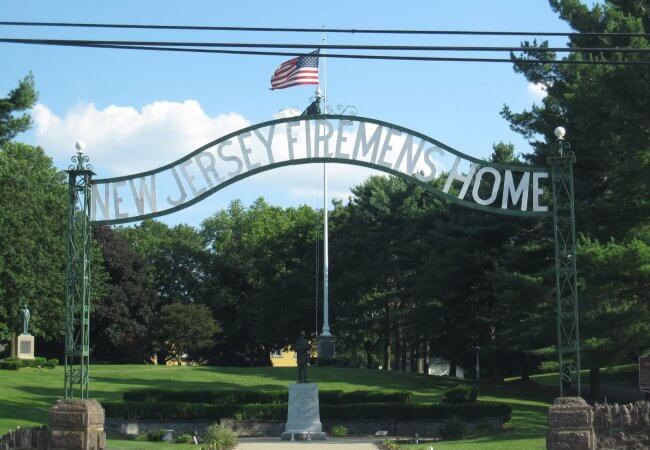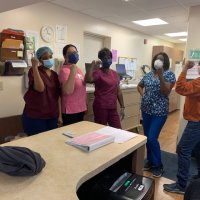
May 27, 2020
COVID-19 Nursing Home Residents Pose Special Challenges

Donna Russo, director of nursing at the New Jersey Firemen’s home, was featured recently on an AARP podcast, Take on Today: An Inside Look at Hospitals and Nursing Homes. Below, she shares more of her insights about COVID-19 on the nursing home residents, their families, and staff.
The Coronavirus pandemic has impacted far more than the physical wellbeing of people in the nursing home setting; the mental health and wellbeing of nursing home residents, their families as well as facility leadership and staff have also been shaken by feelings of social isolation, and grief of the loss of loved ones. Without a doubt, the stress of dealing with an illness so unfamiliar to those in healthcare has had additional devastating effects – feelings that I know I am not alone in saying that I have experienced at my facility.
Although unfortunate to say, social isolation of nursing home residents was problematic prior to the pandemic, and this loneliness sometimes extends to their healthcare teams. The enforcing of quarantine while in crisis mode illuminated dramatically the loneliness that many residents encounter daily. Mental health is always of significant consideration for nursing home residents, especially during this crisis, and beyond. Our firemen have all witnessed atrocities, both while on duty and often within the armed forces. Many are veterans; some, though never without provocation, tell limited war stories of Vietnam and others of the beaches of Normandy.

Staff at the New Jersey Firemen’s home
My home is fortunate to have great staff, families, and many fire fighter associations that give their time and resources for the care of the heroes who live within our walls. While we are privileged that our residents are far less isolated than most nursing care facilities, suffering through the quarantine has been inevitable as we have had no visitors, including families, since the inception in March. Our care for the acutely ill as well as those showing no symptoms had to be bundled and limited for everyone’s safety. Communal dining and entertainment have been put on hold and the use of face masks have disabled our residents’ abilities to observe facial expression (making lip reading next to impossible for the hearing impaired). Families have not been permitted to spend time at the end of life with their dying loved ones. Nurses have been forced to give the news of death exclusively over the phone. While our men can usually be found sitting outdoors amidst the fresh air and sunshine and trading stories, this comradery is no longer occurring. It has all taken an unfortunate toll.
With the assistance of our creative recreation department, we have tried to keep our residents socially connected through technology, namely using iPads. That has not been without its challenges: We don’t have enough iPads, we should have tried using them earlier, and many of our residents are not comfortable using them. But for those willing and able to persevere, the technology has helped, and we need to find more similar ways to keep us connected. However, despite what I observe from my younger generation adult children, technology can never replace the personal touch of a human.
There is no chance we will all ever be the same after this experience. There is no going back. My request, my plea to younger generations is to take more of an interest in nursing home residents. Come visit when it’s safe once again, and we are not social distancing. Perhaps a starting point could be to help us with technology. Certainly, the benefits of intergenerational visiting are mutual as we can all learn from each other. Out of every crisis comes opportunities for improvement.
For the graduates who missed their ceremonies and the spring breakers who never got to go party with their peers; I assure you that I empathize with you. Every milestone is significant at that time in life. So come visit, and take a moment to reflect within our nursing home of retired firefighters, many of whom missed their milestones while serving their country, on the beaches of Normandy and in Vietnam, responding to 9/11, and more. Now they are suffering once again. I would welcome ideas for building the resilience of my staff members, my residents, and their families during this time of adversity. I also want to thank the readers of the Campaign’s blog for allowing me some purposeful reflection while writing this and attempting to lead through these times of uncertainty.
